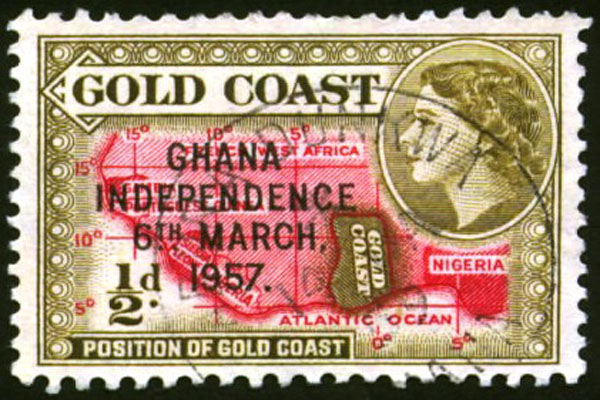
Forgotten History: Early Political Movements in Ghana 1897-1950
 During colonialism, Ghana was called the Gold Coast and was under British colonial rule.
During colonialism, Ghana was called the Gold Coast and was under British colonial rule.
Resistance to colonialism began among the creole people. In the 19th century they settled along the coast. The creole were educated professional people who often voiced their concern through newspaper articles, letters and petitions, both in Ghana and in England. In 1897, they formed the first modern political party in West Africa, the Aborigines Rights Protection Society (ARPS). Their goals were limited to protecting land for the natives and peacefully protesting the worst abuses by the colonial government.
However, other organizations such as the National Congress of British West Africa were formed to exclude the creole elite. This organization was formed by Ghanaian lawyer, Casely Hayford. Their goals were mainly political. They did not oppose British colonial rule but demanded that the black elite be allowed to occupy positions of power that would allow them to exploit uneducated poor masses. However, the British refused their demands.
Other movements emerged in the 1930s such as the Youth Movement but they were often quieted. Marcus Garvey’s Universal Negro Improvement Association (UNIA) encouraged black pride but did not focus on independence. There was some resistance to forced labor, however, the cocoa farmers who were more prosperous and avoided forced labor. The 1937 cocoa holdup in which cocoa was withheld until certain demans were met allowed both elites and nonelites to work together.
1947 the United Gold Coast Convention was formed by members of the educated elite and some youth but Dr. Kwame Nkrumah broke away to form the Convention People’s Party (CPP). After the organized boycott of European goods and stores police killed two protestors and sparked an increase in membership in the newly formed party.



1 Comment
by Samson
This is interesting. Please continue to write more about things we dont know about African history
Comments are closed.